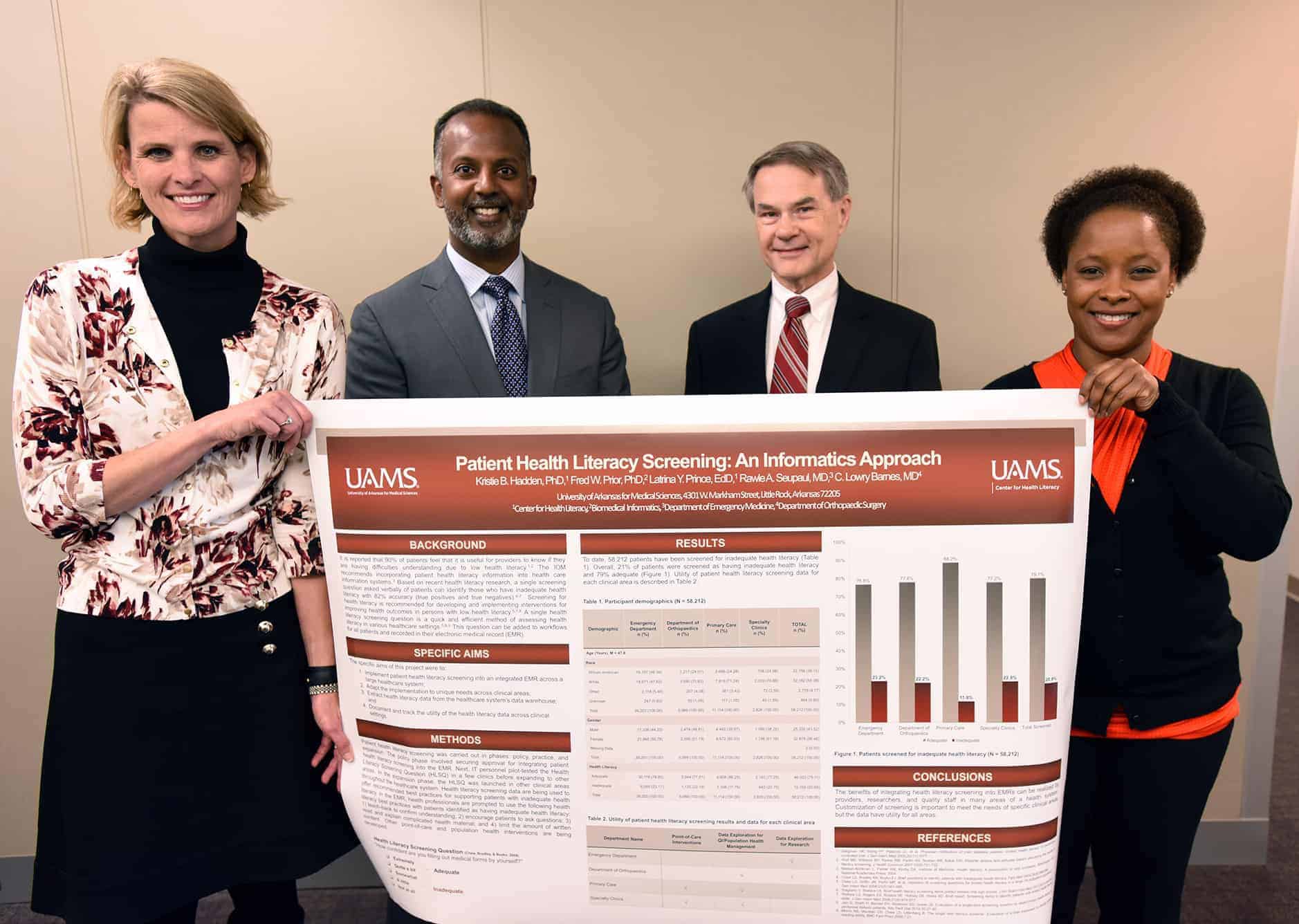UAMS Nabs Health Literacy Award at National Conference
| Nov. 3, 2017 | The UAMS Center for Health Literacy won Best Poster in Health Literacy recently at the International Conference on Communication in Healthcare and Health Literacy Annual Research Conference held Oct. 8-11 in Baltimore.
The conference was focused on both health care communication and health literacy, meaning the skills to find, understand and use health information to make health decisions. The poster illustrated UAMS’ work to screen patients’ health literacy at UAMS through the electronic medical record platform Epic.
Co-authors on the poster were Kristie B. Hadden, Ph.D., executive director of the Center for Health Literacy; Fred W. Prior, Ph.D., chair of the UAMS College of Medicine’s Department of Biomedical Informatics; Latrina Y. Prince, Ed.D., an instructor in the Center for Health Literacy; Rawle A. Seupaul, M.D., professor and chairman of the College of Medicine’s Department of Emergency Medicine; and C. Lowry Barnes, M.D., chair of the College of Medicine’s Department of Orthopaedic Surgery.
The project focused on previous national research that demonstrated that patients want their providers to know when they struggle to understand health information. Additional research showed that a single screening question could predict whether a patient is at risk for struggling with health literacy so that providers can make sure that the information they provide is clear and easy to understand.
More than 58,000 patients have been screened at UAMS in the departments of Emergency Medicine and Orthopaedic Surgery, as well as primary care and specialty clinics. Overall, about 79 percent of patients screened as having adequate health literacy.
When patients are identified as at risk for health literacy issues, health care professionals are prompted to use a set of best practices that include encouraging patients to ask questions, reading and explaining complicated material out loud, and limiting the amount of written content. They are also encouraged to use the teach-back method to confirm understanding of complex information, in which health care professionals explain information in plain language, then ask the patient to repeat the information in their own words.
“It is often difficult to confirm understanding with patients; when asked if they understand, patients often reply ‘yes,’ and if they have any questions, they often say, ‘no.’” said Hadden. “You can uncover many misunderstandings or misinformation, and clarify when you ask a patient to explain what they heard in their own words.”
Hadden said the results show that screening patients for health literacy can provide benefits for both health care providers and patients as each will better understand their counterpart and forge a stronger relationship and level of trust.
“This is an example of how we can use informatics for population health care in an innovative way,” said Hadden. “There’s so much more to do with this project and the data. This was just an optimistic first glance.”
